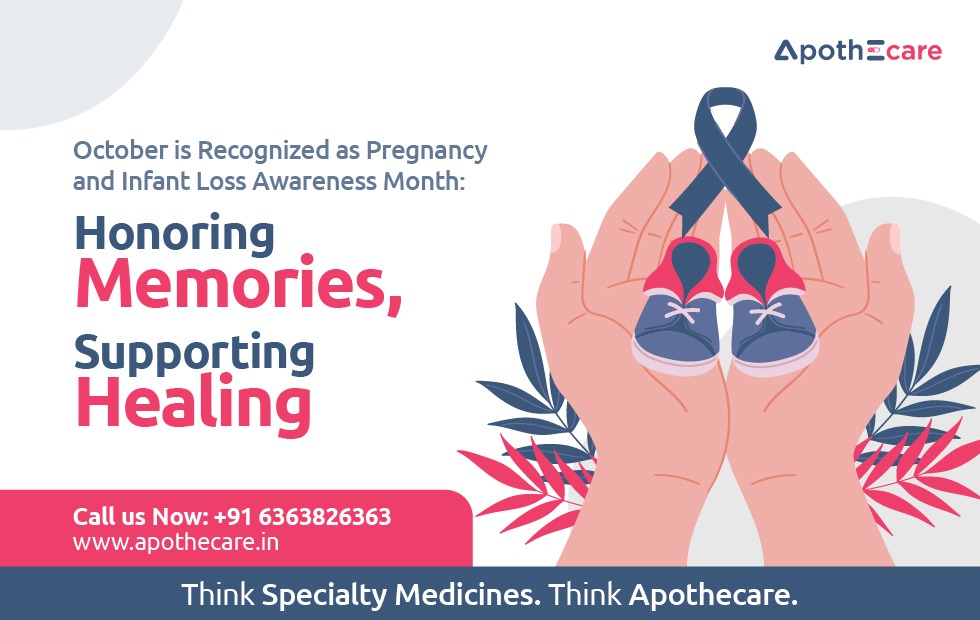
Pregnancy and Infant Loss Awareness Month: Honoring Little Lives with Compassion
October holds a profound significance worldwide as Pregnancy and Infant Loss Awareness Month—a dedicated time to honor the children who were taken too soon and to support the families who continue to grieve their loss. This month is a crucial reminder that grief over pregnancy and infant loss is a deeply personal yet universally shared experience, deserving compassion, understanding, and awareness.
Commemorating the Babies We Never Got to Hold
Pregnancy and infant loss encompass a wide range of heartbreaking experiences, including miscarriage, stillbirth, Sudden Infant Death Syndrome (SIDS), and other causes that tragically cut short the lives of little ones. Each year, millions of families worldwide confront the pain of losing a child—some at the earliest stages of pregnancy, others after enduring months or even years of hope and love.
This month serves as an opportunity to remember and honor these precious lives, no matter how brief their stay.
The Significance of October 15th: International Pregnancy and Infant Loss Awareness Day
The culmination of Pregnancy and Infant Loss Awareness Month is International Pregnancy and Infant Loss Awareness Day on October 15th. One of the most heartfelt traditions on this day is the #GlobalWaveOfLight, a worldwide movement where families, friends, and communities light candles at 7:00 pm local time to remember and honor their children. As candles flicker in homes, churches, parks, and memorials across the globe, it creates a powerful visual of collective love, remembrance, and hope.
This global ritual symbolizes the collective acknowledgment that these children, in their brief time on earth, leave an indelible mark on our hearts and histories. It’s a moment to share stories, express grief, and find solace in the knowledge that they are remembered and cherished.
Why Awareness Matters
Raising awareness about pregnancy and infant loss is vital for several reasons:
-
Breaking the Silence: Many families suffer in silence due to stigma, guilt, or shame. Open conversations help normalize grief and encourage families to seek support.
-
Providing Support and Resources: Awareness fosters the development of support groups, counseling services, and community programs that assist families through their journey of grief and healing.
-
Advancing Healthcare: Increased awareness can lead to better healthcare practices, early detection of pregnancy complications, and improved bereavement care.
-
Supporting Families and Creating a Well-Connected Community- Supporting families grieving pregnancy and infant loss involves compassion, patience, and acknowledgment. Simple acts such as listening without judgment, offering comforting words, or lighting a candle in remembrance can make a significant difference.
Healthcare providers and organizations are committed to offering not only medical support but also emotional and psychological resources during this challenging time.
How You Can Get Involved
-
Participate in the #GlobalWaveOfLight on October 15th by lighting a candle and sharing your remembrance on social media.
-
Educate others about pregnancy and infant loss to break the stigma.
-
Support or donate to organizations that provide grief counseling and support services.
-
Remember and honor your own children or those of loved ones in personal ways—reading their name aloud, planting a tree, or creating a memorial.
In Summary
October is a month of remembrance, compassion, and hope. It recognizes the pain of families who have lost children and celebrates their memories with love and dignity. By raising awareness, sharing stories, and supporting ongoing research and bereavement programs, we can ensure that no child's life is forgotten and that every family receives the support they need to heal.
Let us unite this October in the #GlobalWaveOfLight and stand together in honoring all the little ones gone too soon.
FAQ’s
1. What types of pregnancy and infant loss are recognized during this month?
Pregnancy and infant loss include miscarriage, stillbirth, SIDS (Sudden Infant Death Syndrome), ectopic pregnancy, molar pregnancy, and other causes that result in the loss of a baby. All these losses are acknowledged and honored during this month.
2. Why is October designated as Pregnancy and Infant Loss Awareness Month?
October was chosen to provide a dedicated time to raise awareness, foster remembrance, and support families. The month culminates on October 15th, with international observances designed to bring global attention to this important issue.
3. What is the #GlobalWaveOfLight?
The #GlobalWaveOfLight is a worldwide movement that takes place on October 15th at 7 p.m. local time. Families, communities, and organizations light candles simultaneously to honor and remember children who have passed away. This powerful visual shows unity, love, and remembrance across borders.
4. How can I participate in Pregnancy and Infant Loss Awareness Month?
You can participate by lighting a candle on October 15th during the #WaveOfLight, sharing your story or remembrance on social media, participating in local support events, or supporting related charities and organizations.
5. What are some ways to support families grieving pregnancy or infant loss?
Offer a listening ear, express your compassion, and avoid judgment. Small gestures like sending a heartfelt note, organizing a memorial, or simply being present can make a difference. Also, promote awareness to help reduce stigma and create supportive communities.
6. Is there emotional support available for families affected by pregnancy and infant loss?
Yes. Many hospitals, charities, and community groups offer counseling, support groups, and resources specifically designed for grieving families. Healthcare providers can also guide families to appropriate mental health services.
7. Why is it important to talk openly about pregnancy and infant loss?
Open conversations help normalize grief, reduce feelings of shame or guilt, and encourage families to seek help. Awareness also promotes research, better healthcare practices, and the creation of supportive policies that benefit grieving families.
8. How can healthcare providers better support families experiencing loss?
By providing compassionate care, offering clear information, and connecting families with counseling and support groups, healthcare providers play a vital role in healing. Promoting awareness also helps illuminate the importance of sensitive care.
9. Are there any specific rituals or memorials during this month?
Many families and communities participate in candle-lighting ceremonies, memorial walks, or personal tributes to honor their children. The #WaveOfLight is one of the most widely recognized global rituals.
10. How does acknowledging pregnancy and infant loss benefit society as a whole?
Acknowledgment fosters understanding, reduces stigma, and encourages compassion. It also promotes the development of better healthcare support systems and provides comfort to grieving families, helping them heal and find hope.





